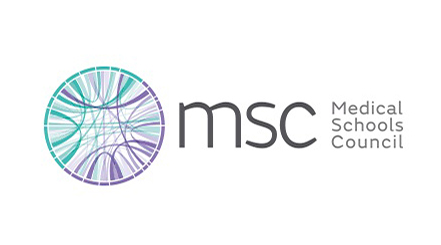Medical student involvement in responding to the current Omicron wave
12.01.22
This statement provides general guidance and information on how medical students can be involved in responding to the current Omicron wave. Individual medical schools will have their own detailed policies which will be applied locally and take precedence over this advice.
Throughout the pandemic medical students have taken an active role in supporting the NHS response. They have been volunteering and working within clinical settings as well as taking part in the vaccination programme. They have done this whilst continuing their studies to ensure they are fully prepared to graduate and join the NHS as Foundation Doctors in August.
Medical students have returned to university and recommenced their clinical placements in the NHS. These placements are essential for them to the gain the skills and knowledge required to meet the outcomes for graduation set by the GMC. As the health service adapts to provide care to a greater number of patients with COVID-19 it is clear that this may impact on clinical placement activity but it remains essential that placements continue and that student learning and experience is maintained.
Given the experience gained in previous COVID surges, the majority of medical schools and their clinical partners have developed approaches which have successfully supported student learning and there have been many flexible innovations and adaptations to support this process. Medical schools are grateful to placement providers for working with them to ensure essential learning activities have been maintained for their students despite the pressure the NHS has been under during the pandemic. Alongside learning there is also scope for students on placements to take an active part in supporting the NHS through the current wave caused by the Omicron variant.
Whilst placement capacity in some specialties will be reduced students will still be able to meet many of the learning objectives in settings focused on treating patients with COVID-19. This learning will be enhanced if they are included as part of the clinical team and given supervised roles that support patient care reflecting their key worker status.
Where students are involved in activities beyond their clinical placements to support service delivery in the NHS the following principles are recommended by Medical Schools Council based on consensus of successful approaches utilised in previous surges of the pandemic.
Students in any form of clinical placement should be vaccinated as per placement provider and Government guidelines. Placement providers have the right to refuse placements to students who do not meet their vaccination guidelines.
Pandemic Surge Placement Principles for Medical Students
- The maximum number of hours students will be allowed to commit to optional work will be approximately 12 hours per week during term time; this may vary by medical school and medical schools may have different rules depending on the student’s year of study and the proximity to summative assessments.
- Optional activity includes unpaid roles supporting the response to the pandemic or paid work in the NHS.
- Students should only take on additional activity if they are confident that they can fit this around any ongoing teaching, learning and assessment commitments. This may need to be discussed and agreed with the medical school.
- Students supporting clinical teams during a surge should be doing this as optional work outside of their placement time.
- In order to prioritise graduating on schedule, students within two months of core summative assessments, particularly students graduating this academic year, are strongly advised not to take on additional duties until they have completed their assessments.
- Placements that become unsustainable due to Covid-19 should not be replaced with unpaid ITU/Covid-19 ward or other clinical work shifts, but rather with apprenticeship style teaching in the settings in which the firm leads have been redeployed. Any missed learning related to GMC outcomes should be delivered as soon as possible to ensure graduation.
- Covid testing and training in and access to PPE should be provided beforehand by the Trust as appropriate to the level of risk and on the same basis as for other key workers.
Download this guidance: Medical student involvement in responding to the current Omicron wave

